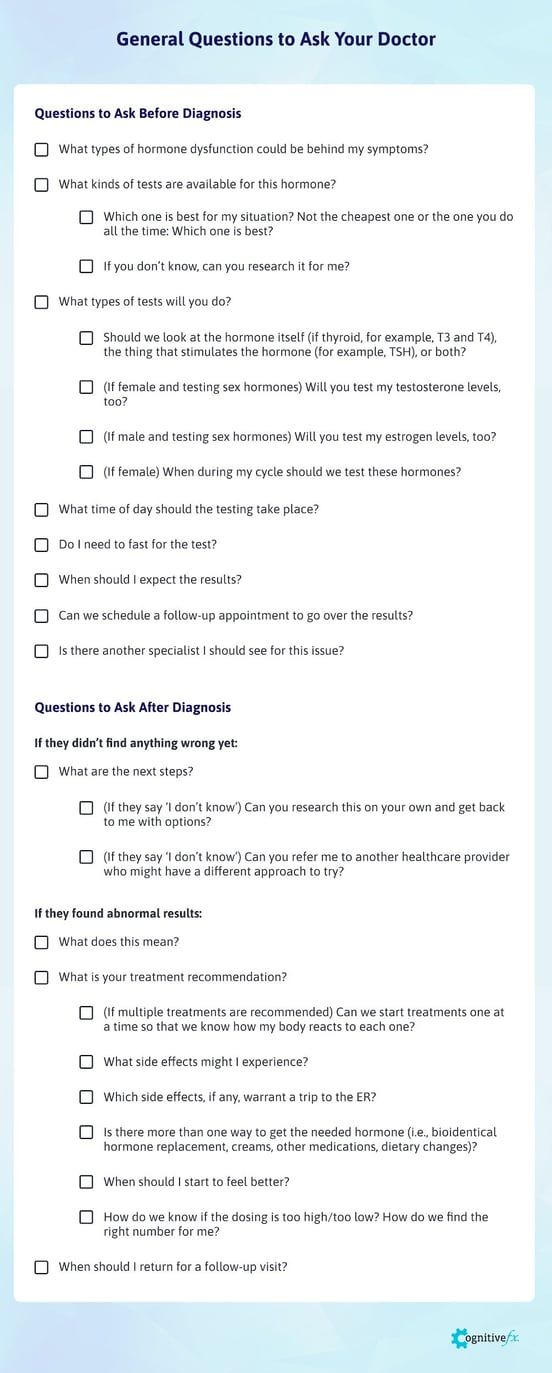How to Talk to Your Doctor About Hormones
As we age, our bodies undergo various changes, and hormones play a critical role in regulating these changes. Hormones are responsible for controlling numerous bodily functions, including metabolism, growth, and reproduction. If you are experiencing symptoms like fatigue, weight gain, mood swings, or decreased libido, it may be a sign that your hormone levels are out of balance. Talking to your doctor about hormone therapy can help you address these symptoms and improve your overall well-being.
Educate Yourself
Before discussing hormone therapy with your doctor, it is essential to educate yourself about the potential benefits and risks. Research the different types of hormones, such as estrogen, progesterone, testosterone, and thyroid hormones, and how they impact your body. Understanding the role of hormones in your health will help you have a more informed discussion with your doctor.
Track Your Symptoms
Keeping a journal of your symptoms can provide valuable insight into how your hormone levels may be affecting your health. Note any changes in your mood, energy levels, weight, and overall well-being. By tracking your symptoms over time, you can identify patterns and trends that may indicate a hormonal imbalance.
Prepare Questions
Prior to your appointment, make a list of questions to discuss with your doctor. Inquire about the different hormone therapy options available, potential side effects, and long-term benefits. Ask about any lifestyle changes you can make to support hormone balance, such as diet and exercise recommendations. Being prepared with questions will ensure you get the information you need to make an informed decision about hormone therapy.
Be Open and Honest
When discussing hormone therapy with your doctor, it is crucial to be open and honest about your symptoms and concerns. Share any lifestyle factors, such as stress, diet, and exercise habits, that may be impacting your hormone levels. Your doctor can only provide the best treatment recommendations if they have a complete understanding of your health and lifestyle.
Consider All Options
There are various hormone therapy options available, including bioidentical hormones, synthetic hormones, and hormone replacement therapy. Each option has its own benefits and risks, so it is essential to consider all options carefully. Your doctor will work with you to develop a personalized treatment plan that addresses your specific needs and health goals.
Follow Up Regularly
Once you start hormone therapy, it is essential to follow up regularly with your doctor to monitor your progress and make any necessary adjustments to your treatment plan. Your doctor may recommend blood tests to check your hormone levels and assess how well your body is responding to therapy. By staying in close communication with your doctor, you can ensure that you are getting the most effective treatment for your hormone imbalances.
Conclusion
Talking to your doctor about hormone therapy can be a daunting task, but it is essential for managing hormone imbalances and improving your overall health and well-being. By educating yourself, tracking your symptoms, preparing questions, and being open and honest with your doctor, you can have a productive discussion about hormone therapy and develop a personalized treatment plan that meets your needs. Remember to consider all your options, follow up regularly, and prioritize your health and wellness above all else.
Don’t let hormone imbalances hold you back from living your best life. Take the first step towards hormonal health by scheduling an appointment with your doctor today.
References
1. Mayo Clinic. Hormone therapy: Is it right for you? https://www.mayoclinic.org/tests-procedures/hormone-therapy/about/pac-20394614
2. Cleveland Clinic. Hormone Therapy for Women: What Are Your Options? https://my.clevelandclinic.org/health/treatments/17904-hormone-therapy-for-women


